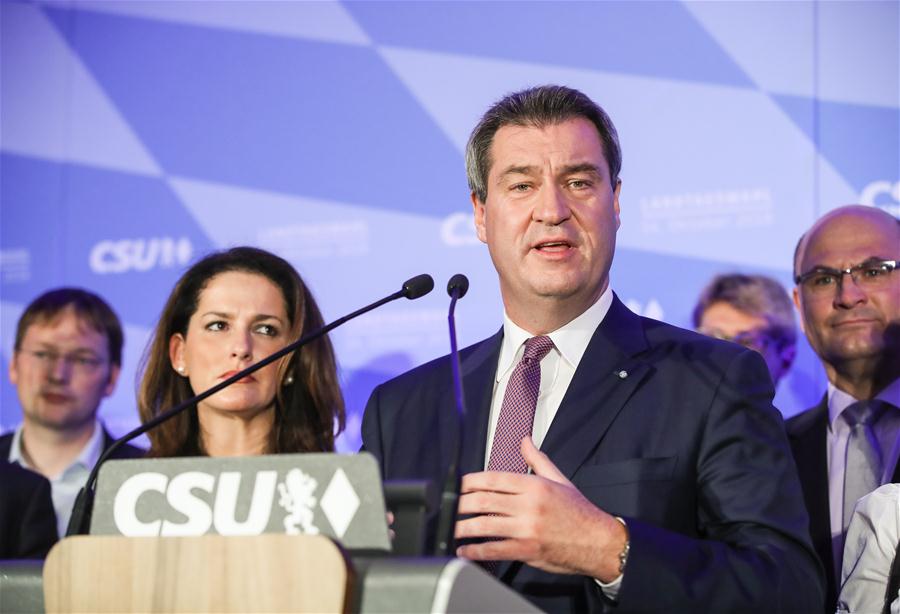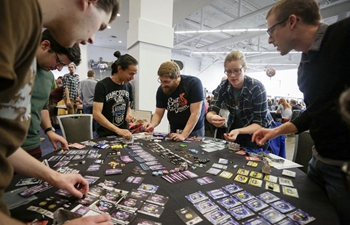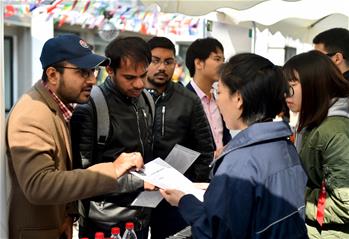German Christian Social Union's candidate and Bavarian governor Markus Soeder (R, Front) delivers a speech after the initial forecast at the Maximilianeum in Munich, Germany, on Oct. 14, 2018. The Christian Social Union (CSU), one of the three ruling parties in Germany, suffered great loss Sunday in the state election in Bavaria, according to the initial forecast by the public broadcasters ARD and ZDF. (Xinhua/Shan Yuqi)
MUNICH, Oct. 14 (Xinhua) -- Despite garnering the most votes, German Chancellor Angela Merkel's ally, the Bavaria-only Christian Social Union (CSU) suffered great loss in the state election on Sunday.
According to initial forecasts, the CSU took just 35.5 percent of the vote, slumping by 12.2 percentage points from the last state election in 2013, while the environmentalist Green Party became the biggest winner by garnering 18.5 percent of votes.
The German Social Democratic Party (SPD), another party in Merkel's Grand Coalition government, has halved in comparison to the last state election, receiving only 10 percent of votes.
The anti-migration far-right Alternative fuer Deutschland (AfD) won 11 percent of votes, crossing the 5-percent hurdle and leaping into the state parliament. They followed the right-leaning Free Voters, which won 11.5 percent of votes.
Official results will be published later on Sunday or Monday.
"It's not easy to separate ourselves from what's going on nationally," Bavarian state premier Markus Soeder said after the results were announced. "The main priority is to form a stable government for Bavaria as quickly as possible, and we accept that task."
The CSU and Merkel-led Christian Democratic Union (CDU) are sister parties and form the Union. The recent polls showed that the Union had reached the lowest supporting rate in history, around 26 to 28 percent, while it received 32.9 percent of votes in the federal elections in 2017.
The CSU has been critical of Merkel's migration policies and Horst Seehofer, CSU chairman and German interior minister, had a dispute over migration issues with Merkel in July and even threatened to resign. The dispute was believed to have weakened the Union and the unity of the coalition government, thus causing loss of voters' support.
SPD Chairwoman Andrea Nahles said "the poor performance of the grand coalition here in Berlin" should be held co-responsible for the crash in Bavaria.
"We have not been able to free ourselves from the directional dispute in the CDU/CSU. That's why there was no tailwind from Berlin, on the contrary. It is clear that must change," DPA quoted Nahles as saying.


















